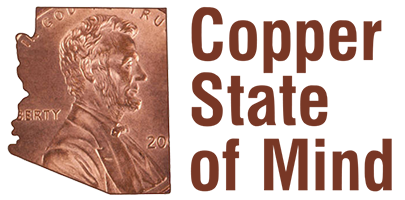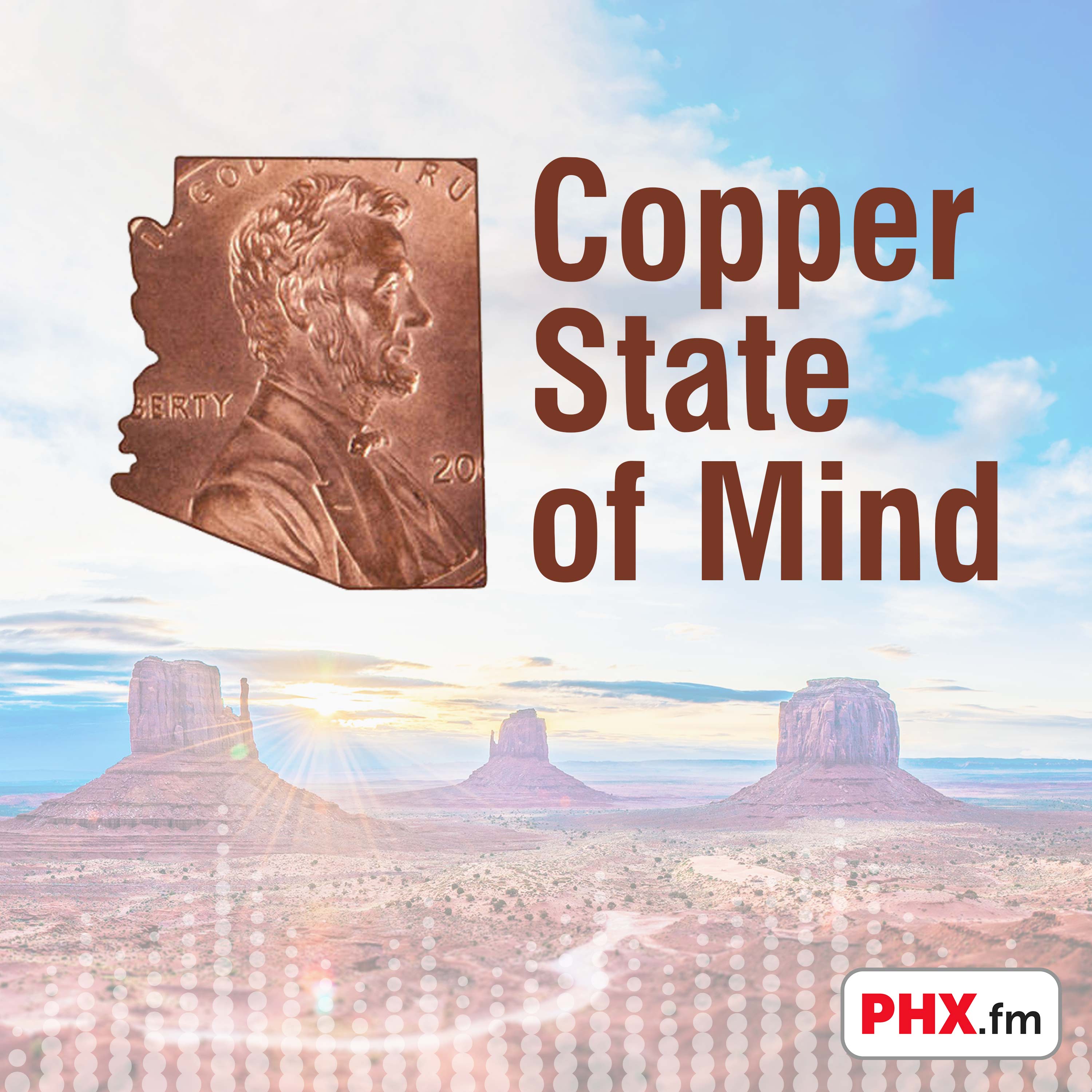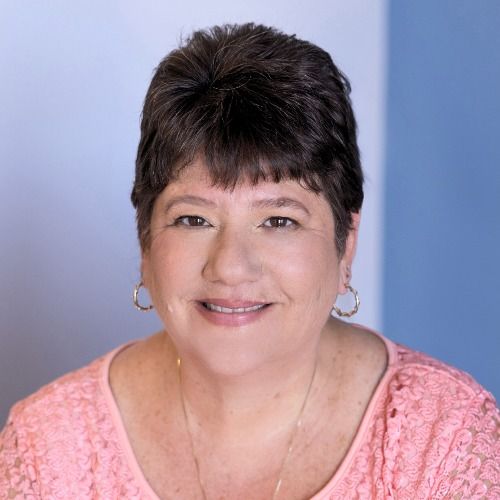The Decline of Local News and Its Impact on Democracy
The decline of local media outlets in the United States poses significant threats to democracy and community engagement. Abbie Fink and Adrian McIntyre discuss the phenomenon of "news deserts," areas devoid of reliable local news sources, drawing on a comprehensive study by Northwestern University's Medill School of Journalism, Media and Integrated Marketing Communications that tracks the scale and impact of shrinking local journalism.
Adrian and Abbie underscore the consequences of losing local media outlets, such as decreased civic participation, increased political polarization, and the loss of accountability from local governments and institutions.
Abbie emphasizes the need for news literacy, educating communities on the importance of diverse news sources and equipping them with the tools to discern credible local reporting from passive consumption of national clips. Supporting local journalism goes beyond subscribing to local newspapers. It involves participating actively in local media by reading, sharing, and financially supporting credible journalism.
Despite the grim outlook, Adrian points out the resilience and entrepreneurial spirit driving new digital journalism initiatives, including nonprofit organizations like States Newsroom and newsletters like the Arizona Agenda and Tucson Agenda.
Read the transcript and notes for this episode on our website.
Key Takeaways
- The decline of local journalism and the diminishing number of local news outlets has created "news deserts" across the United States.
- Research shows that more than half of the nation's counties have little to no local news coverage.
- Local news is critical for civic engagement; its absence correlates with lower voter turnout, reduced civic participation, and increased political polarization.
- Consumers must support local publications to ensure diverse voices and accurate reporting.
- Investing in local journalism through subscriptions and active engagement is essential to maintain informed communities and foster public understanding and civic responsibility.
Follow the podcast
If you enjoyed this episode, please follow Copper State of Mind in Apple Podcasts, Spotify, or any other podcast app. We publish new episodes every other Friday. Just pick your preferred podcast player from this link, open the app, and click the button to “Follow” the show: https://copperstateofmind.show/listen
Need to hire a PR firm?
We demystify the process and give you some helpful advice in Episode 19: "How to Hire a Public Relations Agency in Arizona: Insider Tips for Executives and Marketing Directors."
Credits
Copper State of Mind, hosted by Abbie Fink and Dr. Adrian McIntyre, is a project of HMA Public Relations, a full-service public relations and marketing communications firm in Phoenix.
The show is recorded and produced by the team at Speed of Story, a B2B communications firm, and distributed by PHX.fm, the leading independent B2B podcast network in Arizona.
If you enjoyed this episode, you might also like the PRGN Presents podcast, hosted by Abbie Fink, featuring conversations about PR, marketing, and communications with members of the Public Relations Global Network, "the world’s local public relations agency.”
Transcript
The decline and fall of local media in the United States is a critical issue with far reaching consequences for both communities and for democracy.
Over the past two decades, the landscape of local journalism has undergone a dramatic transformation, leaving many areas without reliable sources of local news. "News deserts," they're called, and we're here in the desert to talk about news deserts. Abbie, what's on your mind?
Abbie Fink:So as I was scrolling through the various channels that I look at each morning to, you know, start my day and then speed off over to do wordle, it dawned on me that as I'm reading the news, that I'm not always entirely sure that what I'm reading is coming to me from, you know, local resources or if it is, repurposed content from national outlets on our local news outlets, social channels and such.
And that can be challenging in a community that may not have their voice represented if there is not a local and local meaning produced and content coming specifically from their community. And this concept of news desert, meaning lack of resources, lack of news coming out of that market, I think is quite troublesome.
And where we just saw in the basis for getting ready for today's show, there was research done by Medill out of Northwestern that really took a look at the impact of the changing news environment as an industry.
The vast number of media outlets that are shuttering or reorganizing and relying on national feed rather than producing local content, the newsrooms are shrinking as journalists are taking their craft and doing it elsewhere. And I think there's long term implications for not having local news in your community.
Adrian McIntyre: is research, I believe, since:This is the third consecutive year that they've conducted a nationwide county by county study of local news outlets to try to quantify these trends.
I mean, those of us who work in the media or adjacent to the media have known this for over a decade, that their outlets are declining, that newsroom budgets are being slashed, that individual reporters are searching for jobs as positions get cut, et cetera, et cetera.
But to really try to understand the scale of this problem at a national level takes some interesting research methodology because again, they're looking at this at the county level.
And there are, let's see, according to their data, there are 3,143 counties in the United States, and more than half of them have little to no local news. So this really is a serious and pervasive problem.
Abbie Fink:Well, and especially if you think of your large metropolitan cities, which would dominate a county probably has the daily newspaper, maybe the designated record of the state probably resides in the largest county in a particular state. But your outlying communities, your rural communities that have very specific needs and very specific topics that are relevant to them.
And if there is not an ability to get that information, you can talk about things like national news and what's happening in Washington, D.C. and the weather across the country and things like that.
But where this really has an impact is local schools and what's happening with the roads and is there a new hospital coming on board? Did this doctor retire those things that really impact your local communities and the things that matter to you in your marketplace? And the.
We've already, as you said, you know, we, us that are in the industry know that we have less available to us for the work that we do, and where do we find outlets for the information we need to share?
And, you know, here in Arizona, we have a tremendous amount of local, independent, lowercase independent newspapers that are produced, written, edited, right here in our own communities. But as competition in that space continues, those parent companies of these local publications are buying up others.
And so you may have one entity that owns 15 or 20, 30 outlets across the state, and good, because the local newspaper stays in the market. But I also think that presents some challenges as well in terms of diversity of voice. And are we getting a variety of places to find information?
Having something is better than nothing.
Adrian McIntyre:Something is better than nothing. And we've certainly seen, though, that there are struggles between local workforces and corporate owners, the struggle to unionize at Gannett, for example, and many others.
er jobs have vanished between:You know, obviously, you can't overgeneralize. There's extraordinary reporters and there's lazy reporters, just like in any profession. But on the whole, you don't go into a business like this for the paycheck. You go into it because you believe in something and you believe that the truth is important, and finding it and sharing it is important.
So what's happening to this industry really does matter. And that's I think why I'm kind of passionate about this.
It's easy in an era of accusations, you know, fake news, and everyone's sort of throwing these labels around to forget that just like our friends and neighbors are nurses and social workers and teachers, they're also reporters. And they've chosen a career which, you know, sure has some level of possibility for fame and fortune, but it's very, very slim.
Most local reporters will tell you that they're in the category of the teacher when it comes to pay scales and things of that nature. So understanding what's happening in that industry is one lens into understanding what's happening in our democracy.
And I think that's why it's so important to talk about.
Abbie Fink:Yeah. And, you know, the fame and fortune question is so interesting. We do a feature on our agency's blog every Monday called Media Monday, and it highlights journalists, print and broadcast and digital. And one of the questions we, you know, many times will ask about, you know, why did you get into this business?
And is there any story in particular that you're most proud of? And, you know, all of them, without fail, will talk about the fact that they got into this business because they enjoy the art of creating a story, and that they like to write, and they find a passion for it.
And then they learned along the way that this was actually a place that they could put that talent to good use. And then when you ask them, well, what, you know, what are some of your favorite stories?
And almost inevitably it is when I was able to tell the story of this family that overcame that, or when we uncovered this injustice and were able to be alongside fixing that and bringing awareness to it. And, you know, they're not all winning Pulitzer Prizes for their work, but they know what they're doing matters.
And, you know, I, in the profession, the path of journalism that I chose, meaning going into public relations, relies on these journalists to do the work that I do in much the same way that I hope they consider me a reliable resource as well.
But, you know, if, you know, two to three newspapers a week across the country are closing because of a variety of reasons, many of which are financial, certainly, but our subscriptions are down. People are not taking the daily paper and picking it up off their front stoop any longer. They're getting it online, which is fine.
I'm not suggesting that there's not room for those things.
But where, as a society, as you said, where is our democracy headed when we do not have this diversity of voice and that we do not have this place to find a lot of different information coming from a lot of different sources.
Adrian McIntyre:And again, I think it's important to be clear. It's not that there's not information, but if you think, as Abbie did a minute ago, about where this is coming from, when you open your phone, which is what most people do now, in lieu of opening the paper, most of what you see are clips from national sources. It's a conversation happening at a level of abstraction much, much higher and farther away than your local community.
And at that level, polarization is easy because it's us versus them, right? It's red versus blue or whatever way you choose to divide the pie. It's sort of simplistic, and it's really compelling.
Obviously, it's making those organizations a lot of money as they continue to fan the flames of fear and dissent and disintegration, if you will. But there's a real impact on local communities, and those are the communities where each and every one of us actually live.
We don't live in this abstract level floating above the United States somewhere. We live on a block, on a street, in a neighborhood, in a town, in a community.
And the research on the impact of losing local media is really shocking. What happens? What happens when the local news outlets go away, as they have in more than half of the nation's counties?
First thing, there's reduced civic engagement. There's lower voter turnout. No matter who you vote for, you should want people to vote.
When the newspaper goes away, you can look at that county's voter turnout in the subsequent years, and it goes down. There's decreased social cohesion. There's less community connection.
You're not hearing the stories of the folks across the way or the issues that matter to you. There's less accountability for local governments and institutions.
And I don't care who you are, you ought to be interested in accountability from your government. These are our elected officials. This is what our tax dollars is going to support, and we should know what's happening.
Transparency and accountability are key.
And there's increased political polarization because, after all, we're only consuming the stuff that makes us versus them the defining terms of the debate. So it's very clear that losing local information sources, local reporting, local voices, has a very detrimental effect.
Abbie Fink:And my view on that is that will intensify the further down we go, and the more and more that this, you know, the shrinking of the industry, the newsrooms themselves, and the lesser amount of options that there are. Now we can talk about the decline and the issues but then, you know, so what do we do about it? Right? You know, what is, what are we supposed to do?
We can recognize this and shake our head and say, oh, that's terrible. But you know, what are we supposed to do about it?
And you know, we've talked on previous episodes about things like news literacy and understanding, you know, how to consume news news in a way that allows you to form opinion and get a variety of resources.
And it is recognizing that a subscription to your newspaper for the small amount of investment that is provides this tremendous look into what's happening in our communities.
And whether you write the check to subscribe to it or you scroll through it looking for those local journalists that are producing that content, coming from the local angle is so critically important. And I think remembering that we have to get it from a bunch of different places.
And so it's your community newspaper, the independent newspapers, maybe it is ethnic publications, if you subscribe to those that are faith based or address other cultural components.
Are you listening to your public radio station in your market, are you turning on your local television news, the non network nightly news, but your local news, and really bringing all of this information together.
I remember in probably junior high and high school current events class, you had to bring an article from the newspaper and actually be able to talk about it.
So we learned how to read the newspaper, but we also learned what was important and we had to have one current event that was nationally and one current event that was happening locally and report in on it in class. And you know, newspapers were donated to schools.
If you went on vacation and you put a stop to your newspaper, they donated those newspaper, the cost of those newspapers to the school. So kids learned how to read the newspaper.
If you ask a high school or college student today, are they getting their news, they'll answer yes, because they really are getting it. But where are they getting it from? And it's the platforms. I saw a really great story on YouTube. Well, YouTube is not a news channel.
YouTube is a portal to give you news, who gave you that story, and that's where the breakdown occurs. They don't recognize perhaps that it is a national story because it's scrolling on their own computer, their phone.
So there's a lot in this study that I think has those of us in the industry worried, continue to be worried about where it's headed.
Gives us pause on how do we rectify it and where do we as consumers step in and sort of demand that we have this voice through our news outlets and our communities.
Adrian McIntyre:It's not all doom and gloom either. There are some positive new developments that they are tracking. In the Medill Local News initiative, for example, there is a rise of digital outlets.
Some of those are former print outlets that have converted to digital.
But a few things specifically that they call out where interesting local reporting is now being done include Patch.com -- it's been around for a while, but there's been a kind of reenergization, if that's a word.
States Newsroom, which is the largest nonprofit state-based news outlet in the country.
Axios has Axios Local and we have representatives of that here in Phoenix who are very active in reporting on local stories, not just national ones.
And also interestingly enough, the journalists making themselves available as expert sources on a regular basis. I often get emails from them about their willingness to comment on certain local stories. And so that shows this is a kind of a two way interchange of information and ideas.
And they refer to a large category of digital startups. We have two of those, maybe more. But the two that stand out for me are Arizona Agenda and Tucson Agenda.
Both subscription, you can get them for free, but there's a paid level that gives you more and it's supported by subscriptions in a kind of direct subscriber way. Both of those started by very well known local reporting teams that have been doing those now for a couple of years.
And across the country we're seeing things like that. And the report identifies 12 bright spots which are news outlets showing promise. They've been nominated by others for that.
So there is a lot happening. It's not uniformly bad, but it is largely bad. That's something that we need to keep our eyes on.
Abbie Fink:It's bad in the fact that it is a trend that has continued over the last several years.
But the entrepreneurial spirit of those individuals that are developing those publications and digital outlets that you listed off, really, I mean, that's a labor of love for, you know, for those publications, you know, in order, you know, they know they have good content, they know that they have solid sources for stories. They know they're bringing a product to the market that is needed.
Then it is, you know, then it becomes a marketing strategy about how do we put this in the hands of the people that need to know it. And you know, as you said, the Arizona Agenda is delivered in a, you know, complimentary to you if you choose to subscribe that way.
But they rely on subscribers and they give you something for your money. You get something different if you subscribe than you do if you get the free issue.
But those journalists have, you know, in the cases of these publications, have a dual role in not only bringing, you know, good quality journalism to the forefront, but they're business people as well, and they've got a product that they need support to market.
And I think we owe it to all of that, you know, to subscribe and to read and to engage with and participate with, because the long term effects of not having these, I think we're seeing the impact that that can be.
And I am, you know, maybe the cautious optimist, but, you know, I speak to student groups all the time and I talk about, you know, the industry, the general communications industry, specifically the journalism community. And, you know, I am a firm believer and I will forever say that there will always be local newspapers. The definition of what that means may change.
But, you know, as long as people are born, people die, people get married, there is a record of that in your community and that's typically the responsibility of the public record publication in your marketplace.
Consumers that take a vested interest in what is happening in their communities and what is happening around them understand the value of having a local publication, local news. The Medill study didn't touch specifically on local broadcast news, television news, but it did talk about public radio and other sources.
But, you know, you can understand the importance of having these things in your community and as smart citizens, as actively engaged citizens, as folks that want, you know and want to know and want to understand what's happening.
These are the sources you need your daily newspaper, you need your national news, and then you need this local commentary that brings you the things that are mattering, as you said, to the neighbor down the street, to the, you know, the park around the corner. These are the things that are resonating and these are the things that are important to us.
And supporting those that bring that to us is critically important.
Adrian McIntyre:Thanks for listening to this episode of Copper State of Mind. If you enjoyed the conversation, please share it with a colleague who might also find this podcast valuable.
It's easy to do. Just click the Share button in the app you're listening to now to pass it along. You can also follow Copper State of Mind in Apple Podcasts, Spotify or any other podcast app. We publish new episodes every other Friday.
Copper State of Mind is brought to you by HMA Public Relations, the oldest continuously operating PR firm in Arizona.
The show is recorded and produced by the team at Speed of Story, a B2B communications firm in Phoenix, and distributed by PHX.fm, the leading independent B2B podcast network in Arizona. For all of us here at Speed of Story and PHX.fm, I'm Adrian McIntyre. Thanks for listening and for sharing the show with others, if you choose to do so. We hope you'll join us again for another episode of Copper State of Mind.





